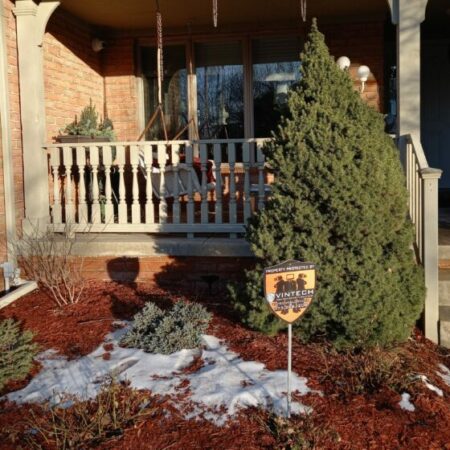In 2022, the City of Chicago saw a 65% increase in theft, 29% increase in…

6 Less Common Reasons your Smoke Detector is Set off
Smoke detectors can be life saving when they are working properly. Unfortunately, this was not the case for Des Plaines, IL mother and her four daughters who died in a fire back in January 27th, 2021. The apartment where they lived had only one exit and although the investigations are still ongoing, it has been confirmed that it didn’t have a smoke detector.
Because of this incident and many others, we want to discuss the importance of reducing false smoke alarms. It’s necessary to spread awareness about smoke inhalation related deaths as this is the number one cause of death related to fires.
How can you identify what is triggering your alarm?
A smoke detector needs regular health inspections to work properly. Most people know that overcooked food, low batteries, or a loose wire can cause a smoke detector to go off. Fortunately, these false alarms can often be prevented with good ventilation, changing the batteries every 5-10 years, and checking the system annually for faulty wires. Nonetheless, there are several other external reasons that can trigger a false smoke alarm. These are six of the less common triggers to look for:
1. Proximity to cold air returns
Smoke detectors are sensitive devices and temperature changes can trigger them. It’s not the first thing you should check but it might be helpful in explaining why an alarm is triggered. If your device is placed close to a door or window, cold air or dust particles from outside can trigger the sensor. This is specially true about false smoke alarms during the night.
Kidde Fire Safety explains in detail why this happens in their article: “Why do smoke alarms go off in the middle of the night?” Their post describes how a battery can develop internal resistance and trigger an alarm when the temperature around the alarm decreases.
2. Proximity to high humidity
Has your smoke detector gone off while you are in the shower? It sounds like the alarm might be too close to your bathroom. The bathroom’s humidity and steam from hot running water, might be causing this false alarm. You can try relocating the device further away from the bathroom and test if that helps reduce/eliminate this trigger.
3. Insects are crawling into your the cavities of the alarm
This is an interesting trigger because it’s unexpected. Many of us love insects only from a distance and find it difficult to believe that our homes have more than a couple of small spiders. Well, this is perfect because small insects can fit into the small cavities of the smoke detector and trigger the sensors. Luckily, this issue becomes a problem more often during the fall and it can be resolved by opening the smoke detector, checking inside, and cleaning the device.
You can read more about how to reduce this trigger in our blog: “Can spiders set your alarm off?”
4. Build up of dust or dirt
Internal and external accumulation of dust or dirt in a smoke alarm is normal. It’s easy to forget about these devices when they are not making a noise. However, dust can also trigger a false alarm. This is because smoke detectors react similarly to dust and smoke particles. The good news is that a semiannual cleaning of the device can be a solution to prevent this trigger.
Additionally, if your smoke detector is connected to your burglar alarm, this cleaning can also be done when your alarm company provides maintenance to your alarm. If you check both devices on the same dates, it’ll be easier to remember when the last inspection/testing was performed and if the batteries of your smoke detector need to be replaced.
5. Strong chemical odors are being detected by your alarm
Chemicals in cleaning products, ammonia, or paint fumes can also become triggers. Most of the time, this false alarm resumes after ventilating the area. If the problem persists, it might be helpful to reset the smoke detector.
6. Furnace/fireplace is turned on for the first time.
When turning on the fireplace or furnace for the first time during the season, dusty elements can create smoke. It might be difficult to prevent this false alarm but should be easy to eliminate by waiting for the smoke to dissipate and reseating the alarm.
When was the last time you tested your smoke detector?
It is important to test the device every six months to make sure they are working properly
Follow these steps to test it:
- Inform everyone in the house you will be testing the smoke alarms to avoid confusion.
- Use safety precautions if you need to climb a ladder.
- Inspect your smoke detector for faulty wires or dust.
- Press and hold the test button on the smoke detector.
- After a few seconds, you will hear a loud siren from the smoke detector.
- If the sound is weak, replace your batteries.
- Test the new batteries to assure they are working properly.
The Takeaway
In most cases, the fact that your smoke detector makes noise it’s a sign that your device is in good condition and responding to external aggressors. Unfortunately, like any other device in the house, a smoke detector can have minor glitches. The good news is that most can be prevented or resolved within minutes.
If you have already checked all these triggers and the problem persists, you should also consider upgrading your alarm. As the detector gets older, it becomes less efficient and you don’t want to risk having a system that doesn’t work well.
It’s understandable to get irritated when you can’t pinpoint the reason for the false alarm right away, but don’t give up! Remember that no one should ever live in a home without a working smoke detector or delay testing it regularly




